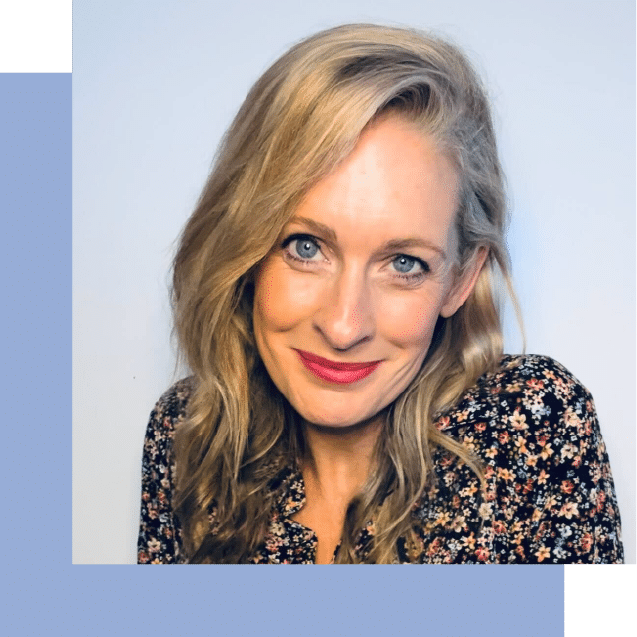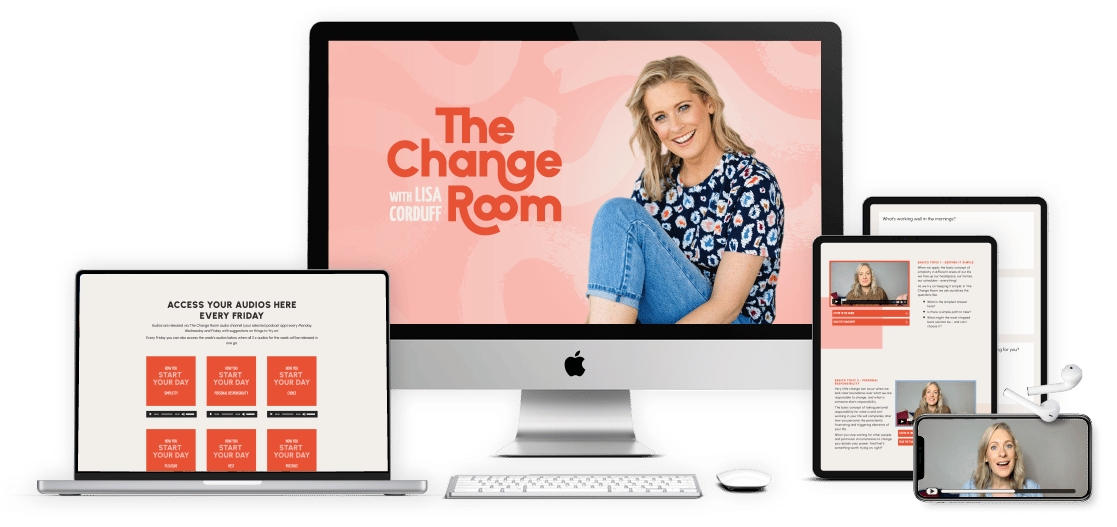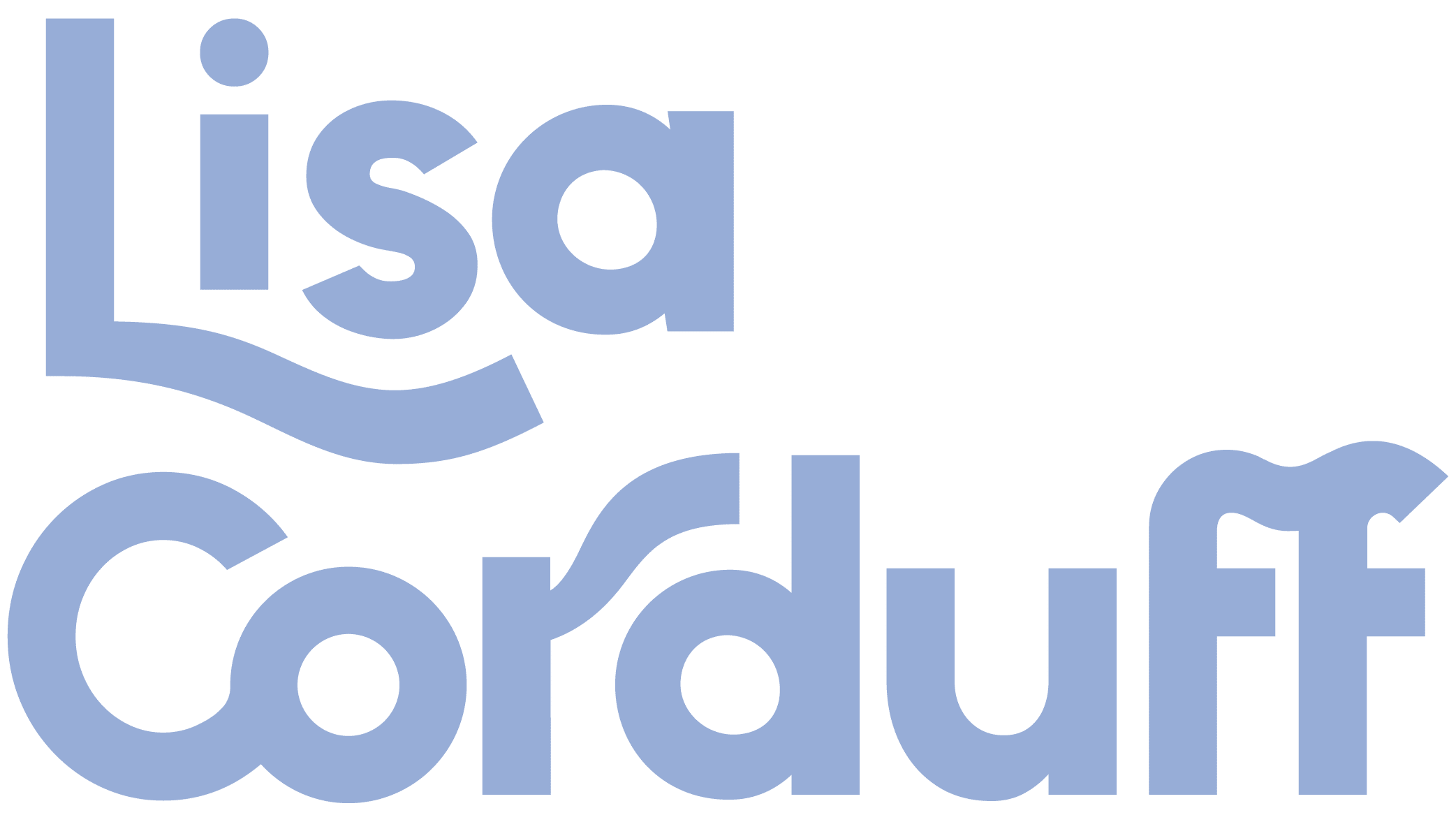
CwL On the road Ep 21 – The Changing Education System with Tonianne

On her last night in Munich, Lisa sat down with her longtime friend, Tonianne, a primary school teacher and very experienced instructional leader with a lifelong passion for education.
In this rapidly changing world, how do we even begin to adapt our education system to set up our kids for future success?
That’s the topic of conversation in this episode and we’ve only just skimmed the surface.
Continue your conversation with Lisa:
Know someone who would love this episode?
Share it with them here (um, and a hefty handful of stars would be greatly appreciated!)
Prefer to read? Access the transcript here.
Lisa Corduff:
I’m quite excited for people to meet you. So this is Toni Anne.
Hello. And we are sitting at her kitchen table in Munich, and you are repairing my Daughters, babies trying to weave needle and thread. And people who have been following along on Instagram will know who you are because I’ve been talking about coming to Munich and being with your family. We’ve been friends since 1998.
Tonianne:
Yeah.
Lisa Corduff:
Yep. My 1st year out of school. My 2nd year. And we both got the same job. Yep. Because Good time. The managers couldn’t decide who to hire, so they hired both of us. And we’ve been friends.
Lisa Corduff:
Yeah. Ever since. And, it’s just been the best being here. And the other night, we were sitting outside Well, no. I mean, which trip was it? We’ve been here 3 times now, and I think it might have been the 1st time. And we were talking
Tonianne:
The sun was shining.
Lisa Corduff:
The Sun was shining. Yes. It’s one degree outside right now. The sun was shining then, and we were talking heaps about a lot. We were. And I had wished that I had put on the mic and I hadn’t, but now I’m leaving tomorrow, so we’ve put it on again. So we need to recreate the magic is all I’m asking. So can you explain what Your job is so that everyone knows your background.
Tonianne:
I’m a teacher, primary school teacher, Have a master’s in education.
Lisa Corduff:
Yes. I mean, you’ve done about 40 bajillion extra courses and I’m massively
Tonianne:
Yes. Overqualified.
Lisa Corduff:
Yes. I mean, you’re going to China?
Tonianne:
Yes. So I’m also an international school evaluator. So I evaluate international schools, and I’ll We’re going to China to evaluate an international school there in a few weeks. What else do I do? I started my own company, which I just recently shut down, and that was around spelling, phonics education. I just finished another course. I finished I got my certificate of school management and leadership at Harvard.
Lisa Corduff:
You’re an underachiever is how I would describe you. I like to keep busy. You do. You do like to keep busy.
Tonianne:
I like the international education scene, so I that keeps me traveling.
Lisa Corduff:
But I think, also, you are massively passionate About education. Yes. You are just the it’s my hobby. If I have any questions about the children or something’s going on with them, like, tones. What would I do? What’s happening here? And you’ve always got a fresh perspective. And with my eldest starting high school Oh, this year. And just launching into what feels like an anxiety inducing For him, most, like Oh, yeah. Next stage of our lives.
Lisa Corduff:
I had explained on the podcast, a big part of This trip was also just kinda having a think about how things could be done differently. Is this the right way? I don’t know. I I look at the education system sometimes, and I think, is it actually preparing our kids for the future that they’re going to be walking into? I I realized on this trip, my kids heard about I mean, they heard about conversations when we’re in Sweden about the people buying houses up north to secure their water future. Yep. We they learned in Oslo about how They really try to encourage the use of electric vehicles and subsidize certain things there because, you know, greenhouse gas. But they were They were noticing environmental initiatives everywhere. They’re concerned about climate change. Bushfires started in Australia that they knew about.
Lisa Corduff:
A war started In Israel, Australia voted no. Like, just that’s just on this trip. Mhmm. But that they are taking actually And he actually had a moment where he was really upset, like, why do I need to learn this stuff when the world’s gonna You know? Whatever. Anyway, like Yeah. And and I said, but we need we need we need kids who understand Science. We need kids who understand these things, who can solve problems. The thing is,
Tonianne:
I think the one thing that you can be certain of is Change. Yeah. And whether or not that’s good change or negative change is a matter of perspective.
Lisa Corduff:
Do you think think that schools and I already know the answer that you’re going to give me, but do you think schools are and and curriculum the general Curriculum is kind of adapting to
Tonianne:
Yeah. Well, I think education is at a point of pivot. Right. Right? I I really do think it’s at a turning point. The education systems need to adapt and alongside with what’s happening in the world. The major thing that’s happening in the world is is the AI AI insurgence, and and the the rate and the speed at which AI is developing is is much, much faster So then then any government system is gonna be able to to keep up with. Mhmm. And so they need to create Systems where they’re not reliant on knowledge
Lisa Corduff:
Mhmm.
Tonianne:
And that they’re reliant on adaptability and and Relying on change as a constant.
Lisa Corduff:
So how are you seeing AI impacting doing your primary. Yep. Where are you seeing it already kinda infiltrating, and how are you preparing? Or what’s going on?
Tonianne:
I mean, we have a research group of teachers at school who are investigating AI and how it can impact our systems at school. And so those systems could be the administration systems. Those Systems could be the assessment and reporting system. It could be the way teachers plan. It could be the way students write and communicate. It could be how information is gathered. So there’s many different ways that AI can infiltrate and schools need to make decisions as to what system they want AI to influence and how much. And some of those decisions will be dictated by privacy laws.
Lisa Corduff:
Mhmm.
Tonianne:
Some of those decisions will be dictated by, intellectual property rights, and some of those decisions will be dictated by how social media governs a lot of what What the kids are exposed to. And so our school, we are looking at the moment, how do we how do we cite chat GPT? Like, How do they like, in a bibliography. Like, in a in a bibliography, at what point, like any other resource that you use, there’s an an element of academic honesty. Mhmm. And so we have to teach kids that CHAT GPT is a resource that needs to be cited. And so that’s where we’re at with that now. We’re just trying and that’s a Band Aid that’s catching up.
Lisa Corduff:
Yeah.
Tonianne:
Right? So that the tool existed, and then we think, oh my. How do we teach the kids how to use this responsibly? Mhmm. And how do we teach the teachers to use This to make their life easier as well.
Lisa Corduff:
Because, this is happening so fast, Is it gonna be down to each school? Because I would imagine that what’s gonna have to go through at at a Government level for government schools or all that. That’s that’s gonna take ages to filter down, wouldn’t the policies?
Tonianne:
Depends on the country that you’re talking about. And most countries have pretty strong privacy laws regarding minors.
Lisa Corduff:
Mhmm.
Tonianne:
And so that takes out a whole heap of AI technology. But will the kids be using it? The what the parents do is okay.
Lisa Corduff:
Up to them. Yep. So you’re just talking about what the school will provide.
Tonianne:
Our our biggest concern and and our main Point is to keep our kids safe.
Lisa Corduff:
Mhmm.
Tonianne:
And we need to make sure that their data is protected and their Privacy is protected. And so if we can’t guarantee that, then whatever app it is won’t will not be used. And so that takes off the table A lot of stuff for Europe. Okay. But what we do use, for example, ChatGbt, you don’t need a sign in. You don’t need a login, And it is how you get your information, and that information itself is based on the majority. Yep. Right? And so it’s really, really complex, and I think government systems oh, how the education Well, education is values based.
So what you learn in history and what you learn in geography is gonna differ greatly between whatever country you are being Taught in. Mhmm. And I think the emphasis is gonna shift soon from a knowledge base to a skills base. It has to because history changed on Saturday. I had a major change happened, and that’s gonna continue Happened. It’s not that’s not just gonna be an isolated incident from last weekend. And so we need to think about what’s important for a historian right now. Right? And so what skills does a historian need? That skill set will change as how we get information and how we get our primary Secondary sources change.
What skill set do you need to be a geographer? And that’s gonna change all the time. As climate change changes, what we know about that, the science behind it, it’s changing and so they need the skills to trial Things, test things, evaluate things. The design cycle is gonna become one of the major parts of all subject areas. The design cycle.
Lisa Corduff:
What do you mean? The design cycle. What do you mean?
Tonianne:
A design cycle is a cycle of of design where people think of a problem that’s presented. They think of a solution collaboratively or alone. I think of creative ways to to solve the problem. Choose 1 or 2 of those creative ways and implement it. Reflect on it, evaluate it, assess it, and then improve it and then go through again. And and that design cycle can be applied at every grade level. Where we applied in grade 3, they apply it in their unit on biomes. They apply the design cycle on their unit on economies.
They apply the design cycle on the unit of forces and motion and physics. Wow. And that goes through Everything. So design something that’s gonna prove that the law of inertia well, just prove the law of inertia through The design cycle. Design your own experiment. Test it. How would you improve upon it? And so going through a design cycle, and they are then figuring out what is something that I can they have to research what is inertia to begin with and and I have that body of knowledge And then go out into, in our case, the school environment and see what is an example of inertia that I see and then test Test it, make a model, and test it themselves.
Lisa Corduff:
I love that because the I do. I I mean, I think that they’re Gonna have to be adaptable. They’re gonna have to pivot quickly. They’re gonna have to solve very big problems. Yeah. I love that. Can we talk about because As we were also discussing this big time, the increasing diagnosis of neurodivergent kids in schools. And I was loving hearing about how you Our adapting class lessons or just the classroom in general Mhmm.
You know? And I’d love you to share a little bit about that because So I know it’s just it’s growing.
Tonianne:
Yep. So neurodiversity is the new norm.
Lisa Corduff:
Yep.
Tonianne:
And I don’t think any teacher at the moment can expect to have a classroom that they can walk into and give a whole heap of worksheets to and have everyone Sit down and do the same thing. Yeah. It’s an unrealistic expectation of any educator now. And And so what we’ve adapted is a philosophy of universal design for learning, which has shortened for u d u d l. And that comes out of Harvard, and we’ve all been trained in it. But the principles of of UDL is that it’s the teacher’s job to meet the Kids where they are. And so we have curriculums and we have stages of progression, and and the students are gonna be at all different Points of those, and it’s the teacher’s job to ensure that they somehow achieve those Standards. And it’s a teacher’s job to break down and, well, to find the barrier that is preventing them from I’m achieving that and and try their best to break it down.
So those barriers can be they can be related to engagement. And so whether or not the the student is engaged, do they care about what they’re learning? Are they able to focus? If not, why not? If they They don’t care about it. Why don’t they care about it? How can I make them care about it? How can I change what I do so that they are engaged? Have I got multiple means of engagement? So if they’re not engaging in Is it just reading text? How can I find a way for them to hear the text too or to watch the text through a video? So Are there multiple means of engagement? Do the kids care about it? And is there a way that they can engage with the work that’s not just sitting At a desk, maybe sitting on the floor. So just within that realm, there is a whole heap of barriers that can be broken down to in order to make the student achieve. There are 32 different ways that you can get the students to engage and figure out what they how to find a way to learn. So we’re all about not you shouldn’t walk into a classroom and Have and see all the students doing a task, and the only way that they can communicate what they know to the teacher is through an essay. For example, Paul, there might be 1 student who’s just finding writing, the task of writing, so overwhelming and so, cult, but they know it. They know what they wanna say, and they they know the content.
But the way in order to communicate their Knowledge is not best done through handwriting. And so the teachers Then asked, what is the goal of your task? Is it to find out how well they’ve understood or is it to write a Report. And if the goal of the task is to find out what they understood, then maybe combining the 2 with the report is not the most effective way for that student to excel. Not saying that they don’t need to write a report. It can be done in small chunks someplace else. But if you’ve got a child who’s really, really motivated about learning about space and the planets, and they have to write a report about it, but That’s why they’re not engaged. Mhmm. Then why would you make them write the report about something like that?
Lisa Corduff:
It sounds so individualized. Mhmm. Is that is This normal, what you’re describing? Because, I’m not too sure that’s what I’m seeing necessarily in schools. Do, like, Do you need extra capacity as a teacher to be able to do this? Does it depend on
Tonianne:
I think it takes a a lot of collaboration between teachers. Right. Okay. So 5 brains are better than 1. And so when we plan, we’re planning in a dynamic group Mhmm. And talking About what are the best ways and the multiple means of communication that students can show. And we’re always talking about our learning goals. Yep.
Like, what is it that really, what is it that we want the student to be focusing on and and learning? And that guides us. And then tools Such as Seesaw is fantastic to be able to have a child, communicate They’re learning through multiple means. They can either take, you know, a photograph of their writing or read something out loud or video record themselves. It’s amazing. And utilizing a tool such as that, which is one of many, is fantastic. Then what happens when they get to the end and they all Have to just be sitting exams, and they all have to be doing assignments. Well, that’s you have to be able to like, you don’t get rid of writing. Right.
But that’s when you focus on the learning goals. Right? You’ve got to think about how is it that you want to Assessing what is it that you’re assessing the children with. You can’t leave anything out. That’s the problem, and that’s where a crowded curriculum becomes an issue. Mhmm.
Lisa Corduff:
Because it does feel like that teachers are just obsessed with getting through. It feels like well, Things that I hear from teachers in Australia, teacher friends, is just they’ve just got a a lot to get through with the kids, so it doesn’t really allow for
Tonianne:
Heaps of of And I think that’s where the education system is in a pivot. Okay. Right? And so it really needs curriculums need To to change to be more conceptually based and not content based. And so the minute you have a a concept based curriculum, that urgency to get to get through stuff, is not as high. And a lot of different places are now tuning into that and are changing the way they do things. New Zealand’s a a big one who’s changing their curriculum to be Conceptually based instead of content based. And the minute you do that, it just takes a whole level off. They’re still learning to write.
They’re still learning Their math, it’s just coming at it from a totally different perspective, which is is more holistic. Yep. Do you think teaching has become harder? Yes. Why? It’s become more complex.
Lisa Corduff:
Does that turn you on, or does it like, do you feel excited by what’s happening in education or daunted or overwhelmed by It what do you think is the
Tonianne:
I wanna get going. You’re totally excited about it. Yeah. I wanna be part of it. I wanna see how it’s changing. My kids are going through it. Yeah. I love it, but I can see how it is daunting when a teacher doesn’t want to have the diversity in the class room.
And just does want to teach all 20 kids the same thing and see that they’ve achieved that and then move on to the next thing. But that’s like I said, it’s our our brains are evolving, And that’s just not how humans are right now. Mhmm. What the world is evolving too. Yeah. Yeah. And I I don’t know why there is so much neurodiversity now. It seems to be in the media a lot that there’s Lots of diagnoses or there are more students.
Lisa Corduff:
So you don’t think when you were started teaching 20 years ago that you just Weren’t aware of of them.
Tonianne:
I think every year, I started teaching in 2001 and every single year I’ve had an ADHD child. In my 1st class I taught, I had 2 children with PhD. I had, 1 student who had a full time aide because he had So many things going on with him, both physical disabilities and mental he had the mental age of the 3 year old. Mhmm. And he was adorable, and never forget him, and I absolutely loved having him in my classroom. It was a classroom of 30 kids and 2 with ADHD, 1 with severe disabilities, And 5 who spoke no English. And on top of no English, every single one of those 5 kids spoke a different language on top of that.
Lisa Corduff:
Goodness.
Tonianne:
And so there was diversity within my very first classroom 20 years ago, and there always has been ever since. It has Never ever been anything else other than that. I’ve always had someone, But now there’s more of it. Yep. Yeah. I’ve never had a classroom that I haven’t had someone but How we how I approach it has definitely changed.
Lisa Corduff:
For the better? Yeah. Because of all the learning and all of the Awareness now and Yeah. I guess it just being normalized, which is a good thing.
Tonianne:
I’m not too sure if it’s being normalized, Fortunately, I wish it was more so. Really? Yeah. I I wish it it it I wish teachers And parents of the kids who are not neurodivergent just said this is our class, and we’re gonna work That planning it instead of pinpointing, you know, Lisa’s like this and Tony Ann’s like this and And really separating them, but we’re getting there, and it and it’s gonna take some time.
Lisa Corduff:
You have children who need to go to bed and are calling you?
Tonianne:
Sorry. Can you hear them? No.
Lisa Corduff:
Mhmm. I can hear them. I don’t know if the mic can hear them. Mama. So I could talk to you about this for a 1000000000 years, and I will. Mhmm. But, we look. I reckon if people have more questions after listening to this, we could always do a follow-up episode.
Lisa Corduff:
Honestly, think that you should be out there talking about this stuff more. I wish I had all the answers. I mean, neurodivergency It’s just one thing. I mean, how schools attack sustainability is a whole another one. Oh, there’s sustainability. There’s but, I mean, I wanted to ask you even about why you’re not even calling teachers Teachers anymore.
Tonianne:
I don’t think teachers should be called teachers. Yeah. Okay. Why? Quickly tell me before. I really think teachers the word teacher, Historically, it means that you have gotten a a body of knowledge that you were going to give to your Students, you’re gonna teach them what you know. And when you shift your thinking to the students that are in your classroom into a concept based curriculum, you really are a learning mentor, and you’re teaching students how to learn. Mhmm. And and they’re learning how to learn because it’s not possible to I give all the knowledge because we don’t have it.
Mhmm. And there’s too much of it. So you really need to be an expert in in learning And the science of learning. Mhmm. And I think that teachers, once they shift, it’s a language And that will will pivot into how you be a facilitator and a mentor of your students, and you need to teach them how to learn. Yeah. And once they know how to learn, and then then those Changes that are occurring on a weekly, daily, hourly basis in the world, they will know how to learn about them and know how to Respond to them. They will know how to document them.
They will know how to investigate them to get a broad perspective. They will know critical thing how to to think about it, and they will be empathetic to what to the ways that Others think about them.
Lisa Corduff:
Yeah. I love it so much. I mean, I said to my son this year, Starting year 7, you know, it’s finding it really tricky. And I said, you just all all you’re doing this year is is you’re learning how to learn At high school, it turned what’s expected. And it the fact that it’s a little bit hard is good because you’re learning how to Figure it out. You’re learning how to learn. He’s like, this guy find this so easy. It’s so why do they not have to work so hard? It’s okay.
Tonianne:
There is you’re learning the skill Skill of learning. Yeah. And the skill of learning means being comfortable in challenge,
Lisa Corduff:
which is basically their life, which is basically life. Yeah.
Tonianne:
It it is life, but our kids, for whatever reason, think things should come straight away and and want it very easy. And they have to be comfortable in that Challenge Mhmm. So that they can learn. We need them Yeah. To be amazing
Lisa Corduff:
Learners and problem solvers. Goddamn it. Thanks for the chat. If people do have more questions, they can they can reply to me. Yep. And I’ll bring them back to you. Okay. And we can continue this conversation sometime when we’re across different hemispheres, and, Yes.
I’ll be thinking about how lovely it’s been to be at your house. I love you very much. You.
Tonianne:
Nice to meet you all.
Hey! I'm Lisa

Thousands of women have transformed their lives using my programs and workshops.
Whether you’re seeking a quick shift or a full deep dive (with the transformation to match), you’ll find tools and training that can help, right here...

FREE Energy WORKBOOK
Get the simple, powerful workbook that can take you from tired and depleted to having your energy back. Even if life is really busy, you’ve got no time,And you’re not sure where to start

THE CHANGE ROOM
IT ALL STARTS WITH THE CHANGE ROOM.
You’ve changed, I’ve changed and it’s time to upgrade. Fun. Unpretentious. Easy. I can’t wait to welcome you inside The Change Room.
...WHAT ARE YOU WAITING FOR?

